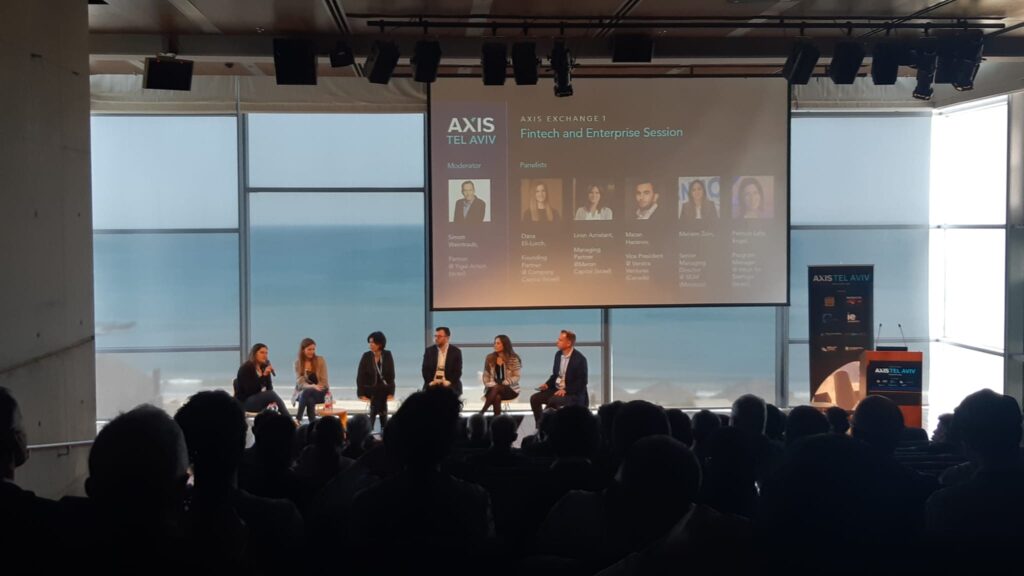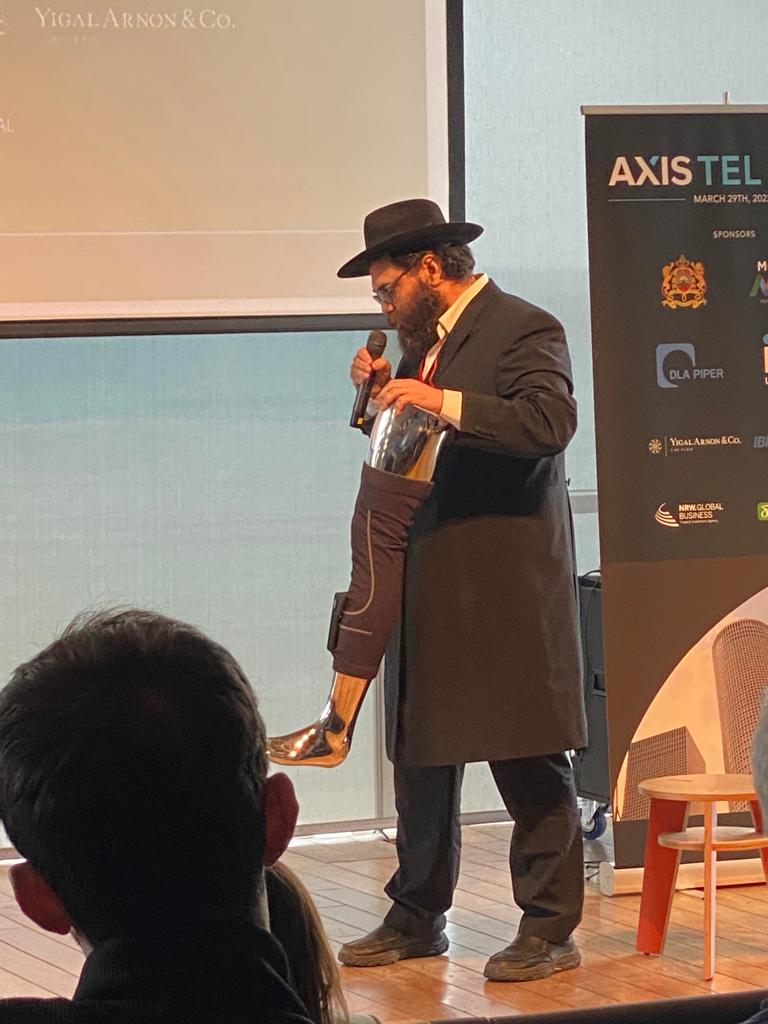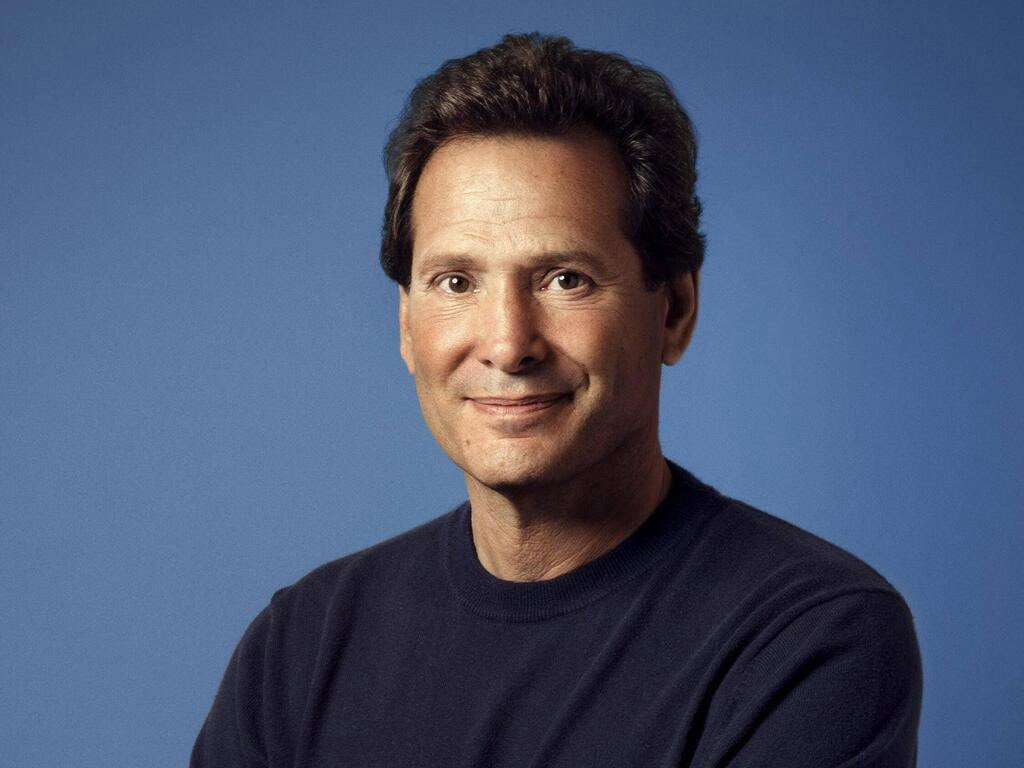A wearable device that “treats with clothing instead of drugs,” a product that protects internal car systems from cyber attacks, a robotics operating system for robot manufacturers, and a device that uses sound to give participants a live performance experience were just a few of the 15 Israeli startups that presented at Axis Tel Aviv 2022, an annual conference bringing together investors, industry leaders, and experts to connect with Israeli startups and get to know the Tel Aviv ecosystem. The conference was held at the Peres Center for Peace and Innovation in Jaffa.
“People need to partner with each other to create innovation,” Ed Frank, CEO of Axis Tel Aviv, tells NoCamels before the start of the conference, “Most people are not looking for technology solutions to solve their problems. They are looking for people they can trust that can solve their problems and help them grow their business.”
Axis Innovation, the company behind the Axis Tel Aviv confab, an Israeli-based open innovation consultancy focusing on bringing cutting-edge technologies to clients around the world. The company practices open innovation through local scouting of Israeli tech and startups in Israel and Europe through a partner network; organizing large-scale events throughout the year, such as this conference; and providing Israeli innovation tours to VIP, management, and innovation teams.
“Sending a list of companies that do different things doesn’t do much. We work a lot with companies to help understand who the people are, what they want to accomplish, and who on the startup side could help solve what they’re trying to solve. And a lot of what we do is that personal connection,” Frank says.
At the conference, Axis connected startups with investors and large organizations with innovation directors. It also paved the way for business opportunities with industry leaders from Morocco. While authentic Moroccan desserts and coffee were served in a breathtaking arrangement on the center’s ground floor, upstairs Abdelouahed Rahal, director-general of Morocco’s Ministry of Foreign Affairs was telling the audience he was excited about Morocco’s burgeoning tech sector and the possibilities of working with Israeli innovators. It was his first time in Israel one month after a significant trade agreement between Morocco and Israel and one year after the signing of the Abraham Accords.

The highlight of the conference was the panels based on four key industries: fintech, health and sports, retail, and mobility. During each panel, dubbed an Axis Exchange, the investors, innovation managers, managing partners, senior directors, vice presidents, scouting heads, and strategy leaders heard pitches and presentations from the Israeli startups that were relevant to each sector.
The first panel was a session on fintech and enterprise. One startup that presented was Exberry, a fintech firm that focuses on delivering deep tech trading infrastructure that offers a number of solutions for stock exchanges, banks, digital securities, and digital assets marketplaces. Exberry was founded in 2018 and has raised a Series A funding round.
After his presentation, Exberry Co-founder and CEO Guy Melamed told NoCamels that the infrastructure of capital markets is outdated by 20 to 40 years.
“It’s not sustainable anymore in terms of creating new exchanges and in terms of introducing new asset types and instruments into the world of trading and exchanges. We’ve created the first cloud-native solution that revolutionizes the space in terms of the fact that we are asset agnostic,” he says.

Asset agnostic means that Exberry’s solutions can be used without needing to take into account the kind of asset type or the instruments used in trading, Melamed explains.
Sign up for our free weekly newsletter
Subscribe“Cloud-native means everything you get is a service. We are a software as a service company…that has solved many challenges like…being able to trade low latency, high frequency in the cloud. Solving issues of latency and cost. We can use blockchain technology to create the next generation of settlements, which means a near real-time settlement process. This is a big thing in capital markets. Last but not least, we revolutionize the time market. Within days, you can have a trading infrastructure and space ready to be launched. The pricing models are next-generation pricing models, instead of investing millions of dollars before having anything up and running,” he says.

In the health and sports tech session, Healables, a digital health startup that has developed wearables that heal, talked about its pieces being worn by athletes and patients to treat sports injuries, chronic illness, and chronic pain without medication. On stage, founder Moshe Lebowitz showcased a knee sleeve with built-in wearable electroceuticals to reduce inflammation. Healables was awarded $1.5 million in grants from the Israel Innovation Authority and BioJerusalem in 2019 and 2021. They are currently raising a $2 million seed round for product launch in the sports and wellness market.
During the retail and e-commerce panel, Amir Sadras, founder of Fugu, presented the company’s payment fraud analysis solution for e-commerce websites that track online payments to help online sellers safely accept transactions they currently lose to fraud, false declines, or payment churn. During a break, he told NoCamels that the most innovative thing about Fugu is that it’s “the only fraud payment solution that tracks payments after checkout.”
“We’re the only ones doing that and that gives us a lot of information. Beyond that, it gives us more intervention points to mitigate that risk and think about new payment models like ‘buy now, pay later’ regarding installments,” Sadras explains, “They could not rely on outdated risk snapshots done here. They’re recurring and you need a company that continuously evaluates the risk. An intervention point provides prediction and accommodation.”
Fugu was founded in 2018 and is currently in the post-seed stage, with undisclosed investments from angel investors and early-stage Japanese VC firm Samurai Incubate.
In the mobility session, the last one of the event, startup C2A Security presented a suite of solutions that it developed to protect the car’s internal systems against cyber attacks. The company said the solutions communicate with each other to allow C2A to detect and mitigate attacks that range from chip vulnerabilities to hacks of autonomous systems. The Jerusalem-based startup was founded in 2016 and raised a $6.5 million Series A funding round in 2019.
During a virtual fireside chat was conducted between Frank and keynote speaker, Dan Schulman – who couldn’t make it to Israel – the president and CEO of US fintech giant PayPal raved about the Israeli ecosystem, noting PayPal has 18 different teams inside the country.

“We are tapping into the immense talent of the tech community – one of the most advanced in the world,” he said, citing the “can do” attitude and discipline of the tech experts in the country is what gets them ahead.
“We have a growing presence in Israel and we will continue to expand,” he added.
Related posts

Editors’ & Readers’ Choice: 10 Favorite NoCamels Articles

Forward Facing: What Does The Future Hold For Israeli High-Tech?

Impact Innovation: Israeli Startups That Could Shape Our Future




Facebook comments